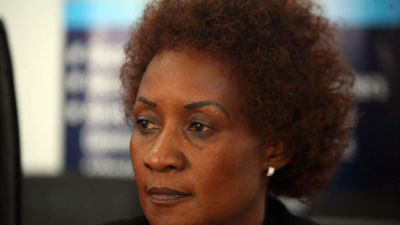The Teachers Service Commission (TSC) is undergoing considerable restructuring, which may limit its powers in managing over 350,000 teachers on its payroll.
If the school reform ideas are implemented, the TSC will no longer be able to serve as an employer and regulator.
TSC is formed as a constitutional Commission under Article 237 (1) of the Constitution, with the primary tasks of registering, recruiting, and employing registered teachers.
Other roles include assigning teachers to any public school or institution, promote, transfer, discipline, or terminate their employment.
This constitutional duty practically provides the TSC sole authority over teachers, with little or no influence from the ministry.
However, according to far-reaching proposals, the ministry will have a large say in TSC operations and will totally take over some functions.
In a significant departure from current practise, TSC would be required to consult with the government regarding teacher recruitment, deployment, and transfer.
The ministry would also be given authority to impose accountability on head teachers and principals who administer government schools, as well as tutors who carry out the education programme.
In order to professionalise teaching, a new regulating agency, Kenya Professional Teaching Standards (KePTS), would be established.
These are some of the recommendations mentioned in the Presidential Working Party on Education Reforms’ (PWPER) draught report.
These recommendations are still being reviewed and will be refined before the final report is given to the president.
If the final report endorses this, the new body to regulate education will be established within a year.
Insiders in the task force said that these recommendations were influenced by the dissatisfaction that exists in the education industry due to the lack of a clear line between employer and regulator.
It also emerged that there has long been concern about the current situation in which the Ministry of Education has no control over the teachers who administer government-owned schools and also implement education curriculum.
The bone of contention, it emerged, is that even though the teachers are employees of TSC, they work for the ministry of Education which is expected to supervise and appraise their delivery of the curriculum.
Yet, these teachers are deployed, transferred and promoted without consultation with the ministry of Education.
Sources in the task force revealed that during stakeholder engagements, Kenyans raised many reservations, arguing that the exclusive control of teachers by TSC has bread unruliness among some teachers, especially the heads who are the managers of the schools.
The education reforms team has made far reaching proposals that may limit TSC powers to human resource functions, some of which it will perform in close consultation with the Ministry.
Draft report reveals that the working party wants headteacher and principals to be answerable to the Ministry and that TSC consult Ministry before making transfers, deployment and promotion of teachers.


